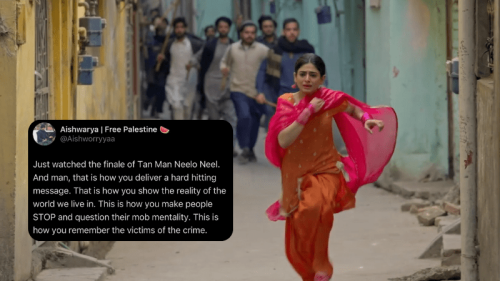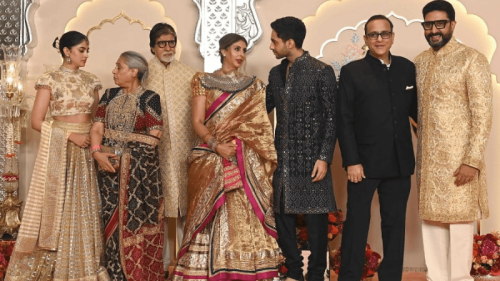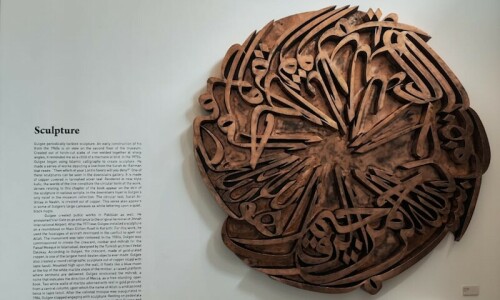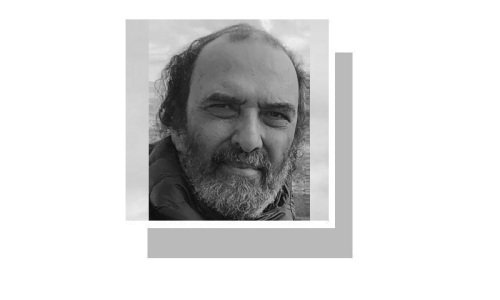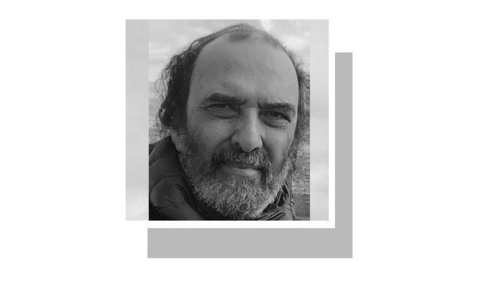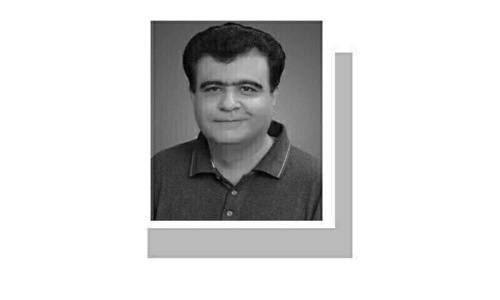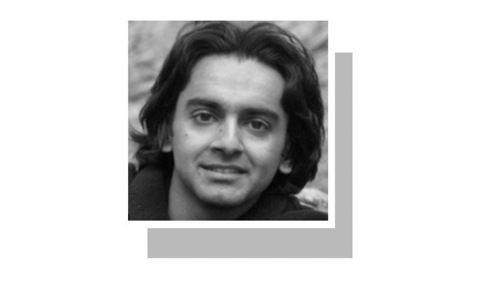RECENTLY, writers, intellectuals and musicians gathered together to pay homage to Shahid Ahmad Dehlvi who served both genres, literature and music, during his lifetime. The gathering was unique as it brought together two separate forms of expression, literature and music. Dehlvi’s distinguished and versatile personality was celebrated, both as a writer and as a musician.
Masood Ashar and Sarwat Ali discussed him as a musician. Zehra Nigah, the chief guest at the gathering, briefly talked about Dehlvi as an affectionate man and said that he appeared allergic to poets. She also read out the introduction to the newly-published collection of articles, Muzameen-i-Mausiqi, which depicts a gathering of Delhi’s great masters of music and is very expressive of the prose qualities Dehlvi was known for. This occasion also served as a launching ceremony of the volume.
Dehlvi has to his credit a collections of articles on the basis of which he is acclaimed a gifted prose writer. But his articles on music and musicians had not been compiled till now. Researcher Aqeel Abbas Jafri has compiled now put them together in a book form. Alongside are articles with lively yet tragic descriptions of the vanished culture of Delhi. Distinguished writers alongside music lovers have also paid tribute to Dehlvi as a writer and as a musician.
Dehlvi was seriously involved in classical music and learnt the art under the guidance of Ustad Chand Khan, the great master belonging to The Delhi School of Music. Living in Delhi and belonging to Deputy Nazir Ahmad’s family, a religiously inclined family, Dehlvi did not think it appropriate to make his association with music public. Thus when he particiapated in music programmes on All India Radio, he was acknowledged by the name of S Ahmad.
However, after migration to Pakistan, Dehlvi felt liberated enough to come out publicly as a musician. He became associated with music at Radio Pakistan’s Karachi station. After seeing that conditions for the art form were not favourable in Pakistan because of religions prejudices, he took up a mission to do his best for its promotion.
Fortunately, Dehlvi was one of the few Pakistani musicians, who in addition to singing, could also talk about the significance of music and explain the intricacies of this art. And he did this job with a missionary zeal by incessantly writing articles on the subject.
Though Dehlvi was popularly known as a writer, he was also famous for being the editor of the literary journal, Saqi. This journal was counted among the leading literary journals of his time and actively contributed in promoting new trends in Urdu literature. The publication was also very accommodative to trends such as modernism and progressivism.
Dehlvi’s articles that portrayed the vanishing culture of Delhi are also an important contribution. He believed that the old Delhi, which was considered a symbol of Indo-Muslim culture, was ruined because of the bloodshed of independence. These articles had been compiled in a number of volumes, however, those on music had remained scattered.
Aqeel Jafri took more than a decade tracing these articles and it is because of his untiring efforts that these precious writings have been retrieved and compiled in a book.























